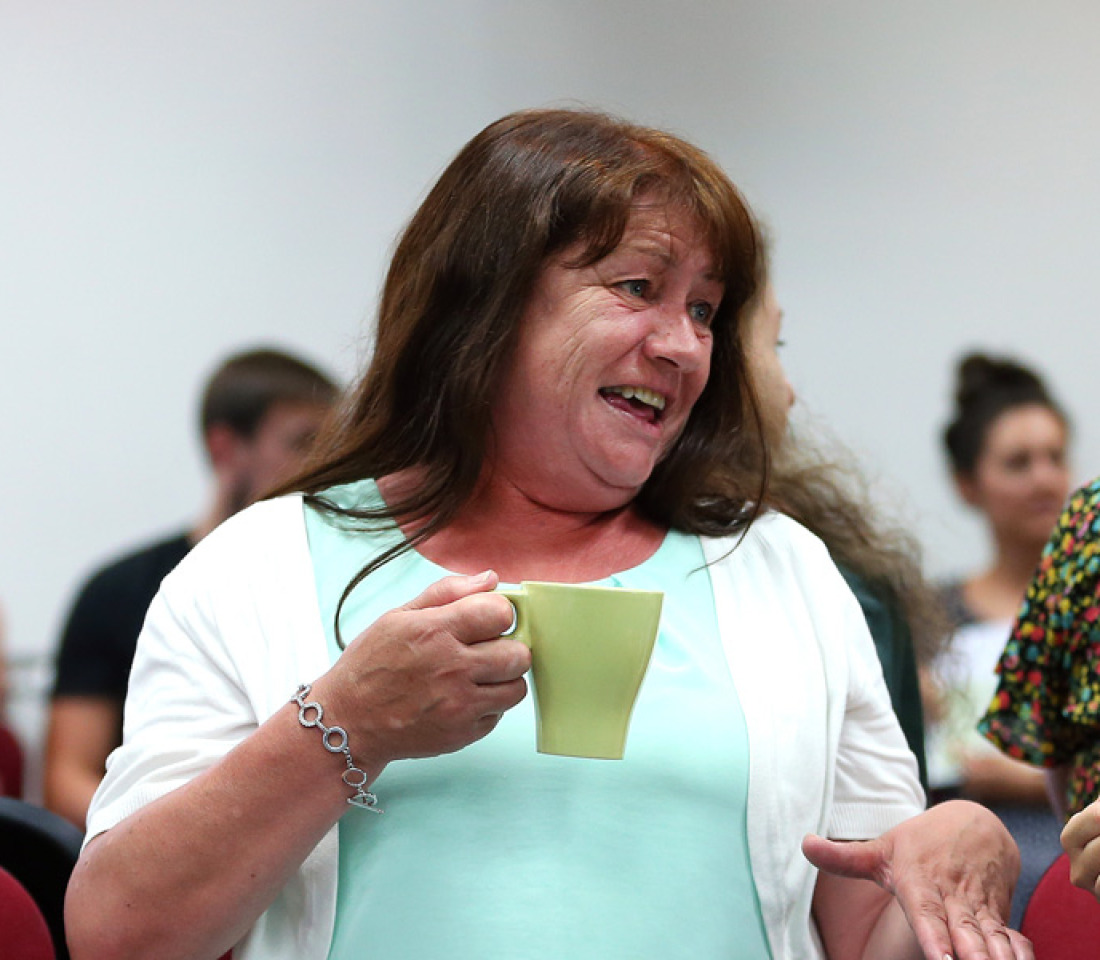The Story of Antonia Grandoni
This is an Easy Read version of the story in Dr Ireland’s book:

Antonia Grandoni was born in 1830 in Italy. She always had good health. She had her regular periods. She ate, drank, and slept regularly. She became attached to people who were kind to her. She had good sight and good hearing. She listened to what was said to her, and gave satisfactory answers. She sometimes smiled, but more to copy those around her than for hilarity. She set herself to work like any other girl. She weighed 4 stone 10 pounds. She measured 22 inches around the waist. A lot of measurements of her face and head were taken by Professor Cardoni. Her head was much smaller than most people’s. Despite the small size of her brain her intelligence did not fall much short of the average of other women. Antonia Grandoni died of blood poisoning on February 1872, aged 41.
After Antonia died, 5 Italian doctors examined her. Then they wrote an account of her and her life. Antonia Grandoni’s father was a boatman. Her mother was a woman of small stature, who died of tuberculosis. Before and after giving birth to Antonia she had several children, male and female, who were quite healthy in every respect. There was nothing in the family history indicating any unusual tendency to illness. Antonia was small at birth, with a small head. Her head soon stopped growing. The disproportion between the size of her head and her face became marked. She was not much later than usual in beginning to walk and speak, but her intelligence was inferior to children of her age. She learned in time to do easy work in the house, and to go out of doors to buy provisions. She was fond of learning amorous poetry, and showed erotic tendencies. On getting older she took to wandering about, and might be seen dancing with grotesque movements to her own singing.

For many years Antonia led a wandering life, an object of curiosity, of pity, or of ridicule to all. At last she was taken to the hospital where she died. There was nothing peculiar about her saving the smallness of her stature, she being no higher than 52 inches. Her weight was 30 kilogrammes. She had good sight and very quick hearing. She had an exquisite sense of taste and smell. The sensitivity of the skin was normal. Her walk was slow and hesitating, but she was a good and agile dancer. She was happy and sociable and never complained, except for bodily pain. But the idea of death disturbed her. She was always quiet and obedient, and when hindered doing anything, she showed grief, but no resentment. She felt for the sufferings of others.
Antonia knew that her head was small, and an object of attention. She was very careful in her dress, and was fond of attracting the notice of the other sex. She remembered those who were kind to her. She was glad to see them, and would go in search of them when they did not appear. When visitors came to the hospital she desired to be noticed, and was disappointed if she were neglected. She was fond of talking about marriage. She liked singing and dancing. She could play well upon the cymbals, and was anxious to get her companions to dance to them. She showed a good memory for names of people and things. She remembered places and bygone events but had no memory of time. She answered questions satisfactorily, adding information without being asked. She knew good from evil, and made sensible remarks upon the conduct of her companions. She was religious through imitation and habit, and behaved well in church. Every attempt to instruct her was without success.
In his book, Dr Ireland wrote this: It appears from the Italian doctors’ account that Antonia’s imbecility was more decided than one would think from the shorter account of Professor Cardona. The description of her mental powers could be more complete. I would especially like to know what knowledge she had of numbers, and what was the nature of the attempts at instruction which failed. I have little doubt that, by a well-planned education in childhood, her mental powers could have been considerably increased. Her wandering and erotic tendencies could also have been repressed. Apparently she was a poor neglected creature. But her mental powers appear very extraordinary, if compared with the smallness of her brain.

You can find the digital version of Dr Ireland’s book in the UKHML archive, using the link below.
It is called “On Idiocy and Imbecility”. Antonia’s story starts on page 129.








